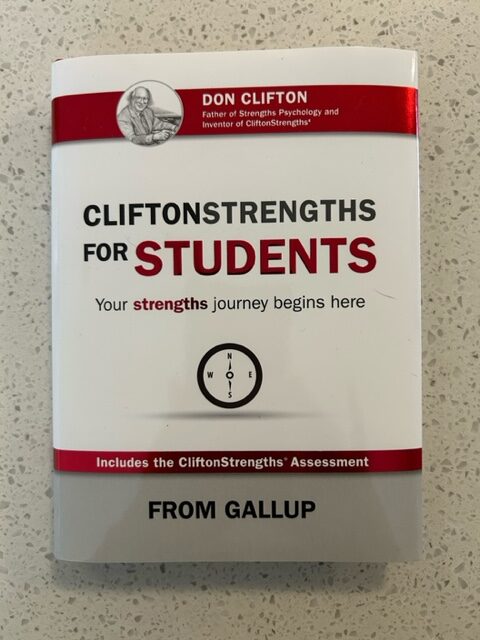Know Your Talents
Skills development is an essential aspect of personal and professional growth. As technology, industries, and job requirements continue to change, individuals and organizations must adapt and upgrade their skill sets to remain competitive and relevant. In the past, many people held jobs for life, relying on a set of skills learned early in their careers.
In today’s fast moving and ever-changing workplace, skill development becomes even more critical to excel in your field. Almost all careers require ongoing education and certifications. Think about your doctor. He or she may have graduated from the best medical school in the country, and I am sure you assume that they continue to educate themselves with current research, medications, procedures and any other techniques related to their specialty.
That goes for almost any job or career. At my current job, I have acquired multiple certifications in the last few years and have also taken ongoing education courses provided by my current employer. It’s all about improving and refining your skillset.
There is something very important missing from this equation. Very few employers, colleges and high schools focus on the talent of the employee or student. This blog will explain the difference between skills and talents and how knowing your talents will help you reach your true potential.

What is the difference between a skill and a talent
When I was a junior in High School the focus turned to college, not just for me, but for all of my friends and classmates. I’m sure there were some that had no intention of going to college, but a very large percentage of my classmates were concerned about college.
The most common question for students, parents and guidance counselors was, what is the best college I could realistically get accepted to? I’m not sure much has changed. Every high school student is usually asked; where are you applying and/or where did you get accepted?
A shared and common mindset was the better the college, the better your chances of being successful in life. It is easy to track the average starting salary by profession and average salary after 10 years in a specific profession.
It is probably more important to track what careers value job satisfaction and fulfillment over salary. Educators, Social Workers, Non-Profit jobs, Entrepreneurs, and artists are among the most rewarding careers according to organizations like Gallup, Pew and The Conference Board. Probably the most overlooked value in choosing a career or college is knowing and understanding your talents. A talent is not a skill.
Being good at basketball isn’t a talent. It is a skill. The more you practice shooting baskets, even with minimal help from a basketball coach, the more you will improve. An accomplished accountant spent years in college and a lot of time studying for the CPA exam.
You aren’t born with a pencil in your hand doing math problems. The first example of the basketball player, their inherent talent might, and I caution the word might, be athletics. Some people are born as natural athletes. It’s not controllable.
The accountant might have been born with an aptitude for math. However, since both require an incredible commitment to skill development, it is possible that the people I mentioned in the example did not have natural abilities for athletics or math.
A talent refers to an inherent quality, something you were born with, an aptitude you possess which allows you to excel at a particular discipline, activity, role or career naturally, with little effort.
What’s even more interesting is that a 23-year study of 1,000 children living in New Zealand shows virtually no change in personality traits regarding inherent talents from 3 years of age to 26. In one on the many books published by Gallup, in their Strength-Finders series, they provide a great example referring to the movie Rudy. Many of us have seen the movie, Rudy.
The story of a high school student that dreamed of playing football for Notre Dame. He wasn’t a good student nor was he a great athlete. Notre Dame is a highly competitive academic university, and their football program was one of the best in the country. His odds of getting accepted into Noter Dame was very slim. His odds of playing football for Notre Dame was even more slim. The odds of doing both, for someone with his minimal skillset and lack of athleticism, was impossible.
As the story goes, he applied to and attended a community college near Notre Dame University. After his first year he applied to Notre Dame as a transfer student. He was not accepted, but didn’t give up. He continued to apply. He was accepted on his final attempt. He then tried out for the football team. By sheer determination and hustle, he made the practice squad.
The practice squad on any division one football team is far from making the actual team that suits up to play football and represent their school on Saturday’s. However, for Rudy making the practice squad was an incredible act of perseverance and determination. Rudy’s hustle, commitment, and passion for playing football for Notre Dame won the respect and admiration from his teammates, and eventually the head coach. As a show of gratitude, the coach allowed him to suit up for the final game of the season and he managed to get on the field for the few remaining plays and recorded a quarterback sack.
At the end of the movie, he was carried off the field in what was, for him, a lifelong pursuit. The movie was based on a true story, was very accurate and in the final scene in which he was carried off the field did happen as it was portrayed in the film. Rudy then made a career of public speaking about motivation and persistence. He certainly was a living example of persistence and resilience. I would like to present a different perspective with no offense to Rudy. If one of his teachers, parents, friends or coaches advised him, while he was a senior in high school to apply to Notre Dame and continue to apply until he gets accepted and then to play on the practice squad week-in and week-out getting pummeled, they would have done him a major disservice. The story of Rudy was far from the ideal career choice. The goal for having a successful career and a fulfilling life is to find your talents and then pursue them with the same persistence as Rudy.
Another example in the Strength-Finder series is Tom Brady (I am paraphrasing here because the book uses Joe Montana). Tom Brady is possibly one of the greatest football players to ever play the game. He was born with athletic ability and the mind to play quarterback. Most people do not understand the progressions a quarterback has to calculate in his mind. He has to read the coverage, anticipate where is receivers are going, understand the blocking patterns of the offensive line, while simultaneously watching defensive lineman and linebackers with his peripheral vision who are trying to knock him out.
Many quarterbacks are unable to make the successful transition from college to the NFL because they don’t have the rare combination of athletic ability and mind for the game. Rudy is an example of someone who did not focus on his talents, and still managed to beat the odds by playing 3 plays in a division 1 football game. Tom Brady was someone who recognized his talents and used the same level of persistence as Rudy to become one of the best people in history at his profession. The question is; who would you rather emulate Rudy or Tom Brady.
How to recognize your talents
The simplest process for recognizing and understanding your natural talents is to do the following:
- Think about what you really enjoy. It could be a hobby, sport or passion. Usually, if you really enjoy doing something, it is because you have a natural ability and aptitude. Consider intangible personal qualities like compassion, generosity, your ability to make friends, your drive or ambition. These qualities, if recognized, will help shape your career and lead you to personal fulfillment.
- As early as possible and certainly in high school and college, take courses that interest you. In my high school we had Home Economics, which was cooking, Auto Mechanics, Photography, all Performing Arts and I’m sure there were other options that I don’t remember. In college, especially if it is a large university, there are almost no limits to the number of classes you can take and clubs you can join. Become a sponge. Take any class or join and club that interests you. It won’t take you long for you to determine if you have a natural talent for any of the subjects you are studying or any clubs you may have joined.
- Ask your teachers, guidance counselor, parents and friends. They will see qualities that you might not be aware of. Ask them directly “what am I good at and what profession do see me doing in the future?” This could be another eye opener as well.
- Take any personality test available through your school or anything you may be able to find online. There is very little downside in taking some of these personal assessments. I recommend Strength Finder, a book and personal assessment developed by Gallup. I have the link in the conclusion below.
Conclusion
Recognizing the differences between skills and natural talents is vital for personal development and career choices. While skills can be acquired through effort and commitment, nurturing and leveraging natural talents can lead to exceptional achievements and deep personal fulfillment. The interplay between skills and natural talents is a fascinating aspect of human potential, demonstrating the diversity and uniqueness of individual abilities. Embracing both, individuals can shape a well-rounded and fulfilling life. As a health and wellness coach I work with teenagers to help them identify their talents and develop a game plan to cultivate those talents. I utilize different strategies depending on each person’s abilities, goals and dreams. If you are a high school teenager or a parent reading this blog and don’t think you want or need to work with a coach, I would recommend the following book. CliftonStrengths for Students: Gallup: 9781595621252: Amazon.com: Books. This book can assist parents and students if they prefer a self-directed approach. The CliftonStrengths for students is one of the resources I use and provide this book at no cost for any student who wants to work with me as their coach.
